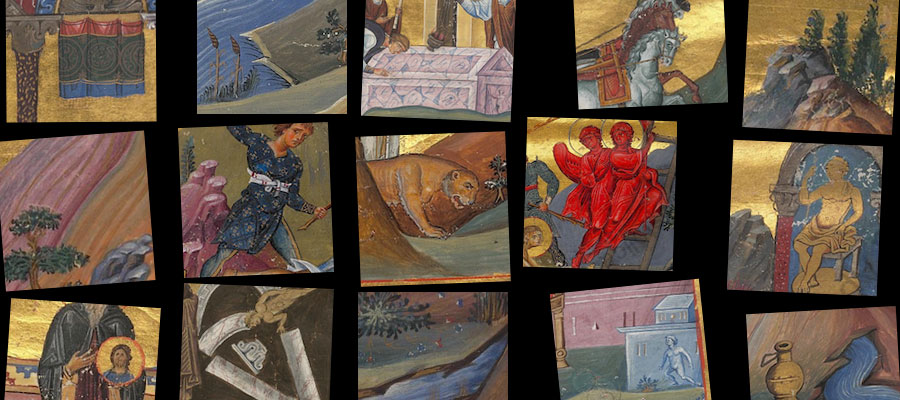Visual and Verbal Expressions in the Menologion of Basil II, Parts I & II (Sessions 1A & 2A)
Organized by Alicia Walker, Bryn Mawr College and Charles Kuper, University of Tennessee, Knoxville
The synaxarion known conventionally as the Menologion of Basil II (c. 1000, Vat. gr. 1613) displays one of the most extensive visual programs of any surviving Byzantine manuscript. The direct coordination of images and text has sustained rich exploration of similarities and differences between modes of visual and verbal expression in Byzantine devotional art. This session is organized in conjunction with the forthcoming publication of the first full edition and English translation of the manuscript (Kuper, Dumbarton Oaks Medieval Library 2025). Speakers include emerging and established art historians who have worked closely with the program of illumination and are reconsidering their earlier and in-progress work in light of the new edition and translation. How might newly revealed nuances between text and images change previous art historical interpretations? How might the full, searchable translation allow for fuller, sustained consideration of text-image relations across the manuscript? Papers will address a wide range of themes, from the contrast in posture and gesture between pagan-sculptural and Christian-saintly bodies; themes of theatricality in the portraits of saints and narrative scenes of martyrdom; questions of imperial power and racialization in the depiction of holy people; issues of sacred and secular temporality; gendered readings of sanctity; and aspects of (mis)communication between text and image.
Music and Metamorphosis in Byzantine Religion (Session 4C)
Organized by Georgia Frank, Colgate University
Over the years music has played an important role in Byzantine Studies. From the acoustics of churches (Antonoupoulos, Pentcheva ), women’s choirs (Ashbrook Harvey), and sessions on Christian and Jewish hymnographers (Krueger, Lieber), scholars have explored the soundscapes and songscapes of the Byzantine civic, political, and religious life. This session expand comparative and performative approaches by paying closer attention to aesthetic, sensory, temporal, and performative dimensions of early Byzantine ritual singing in Constantinople, Jerusalem, and Egypt.
